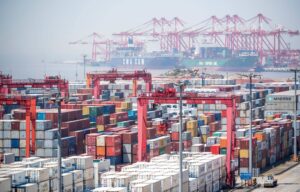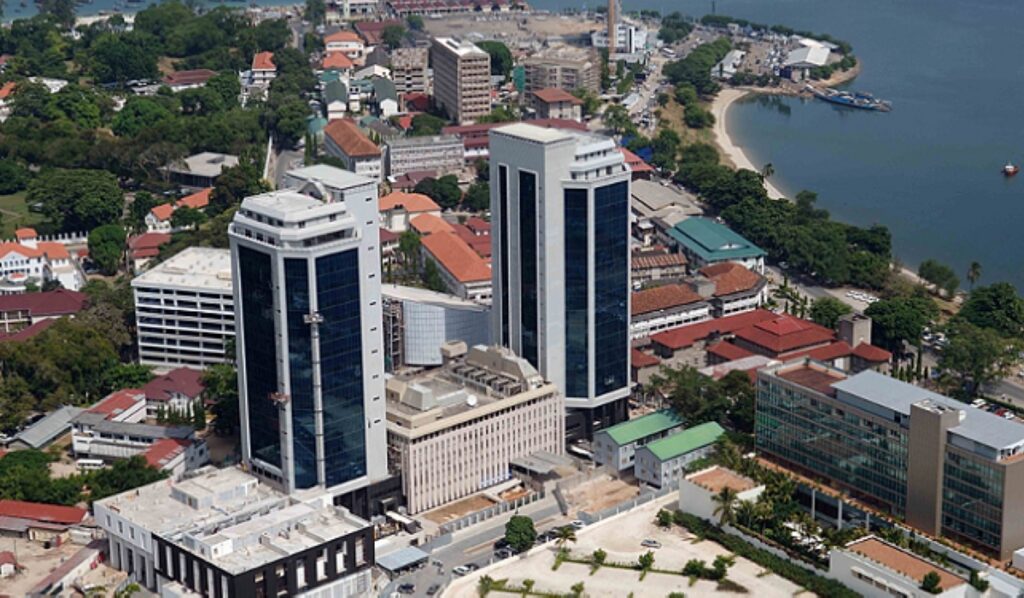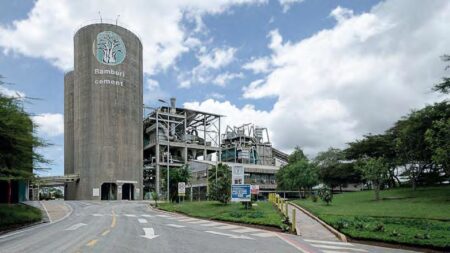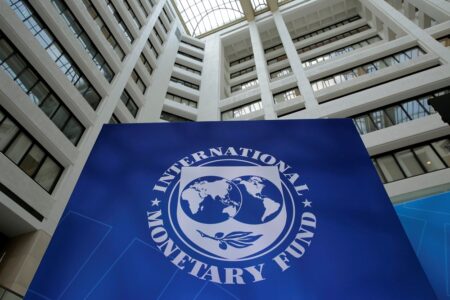- Tanzania has received $149.4 million for budget support from the IMF.
- The lender has commended Dodoma’s ongoing economic reform and diversification plan.
- IMF approves $786.2 million for Resilience and Sustainability Facility (RSF)
Days after the International Monetary Fund (IMF) ranked Tanzania third on its list of top-performing African economies, its Executive Board has announced an immediate disbursement of about $149.4 million for budget support after completing the third review of the country’s Extended Credit Facility (ECF).
“The Executive Board also approved a 23-month arrangement under the Resilience and Sustainability Facility (RSF) of about US$786.2 million to support Tanzania’s efforts to build resilience to climate change,” the IMF reports.
In its report, the IMF attributed Dodoma’s economic performance to the country’s commitment to economic reform and diversification. The multilateral lender noted that the country is currently focusing on attracting foreign investment, promoting sustainable development, and fostering a favorable business climate.
The country has also had sustained macroeconomic stability, considerable infrastructure investments, and a growing service sector, according to IMF reports.
Tanzania’s GDP growth is driven by growth in key sectors, including agriculture, tourism, mining, and manufacturing. Growth in these sectors is attributable to ongoing government initiatives aimed at enhancing industrialization and value addition, especially in the agriculture sector and the related value chains.
“A growing GDP signifies increased economic output, higher incomes, improved living standards, and enhanced economic resilience,” the IMF report reads.
Should the nation maintain this trajectory, the IMF foresees the creation of new opportunities for businesses, entrepreneurs, and jobs. In this case, the country is expected to enjoy considerable poverty reduction and sustainable development.
Tanzania to maintain stable economic growth
Owing to Tanzania’s sustained economic growth, global investors and international stakeholders view the country as an attractive investment destination, which has increased the country’s foreign direct investment.
“The government’s commitment to fostering a conducive business environment, promoting trade and investment, and implementing sound economic policies has been instrumental in garnering confidence from both domestic and foreign investors,” adds the IMF.
Nonetheless, the Washington-based institution urges Tanzanian policymakers to emphasize what it describes as ‘prudent fiscal management’ and ‘targeted reforms.’
The IMF also calls for efforts to improve education, healthcare, and social infrastructure to ensure that the benefits of economic growth are felt at the ground level of society.
Tanzania is also expected to receive a disbursement of $153 million following the completion of the IMF’s first review of the ECF Arrangement and the 2023 Article IV Consultation with Tanzania. This completion and subsequent disbursement bring the total funding access under the arrangement to $304.7 million.
The IMF explains that the ECF Arrangement is meant to support Tanzania’s economic recovery, preserve macro-financial stability, and promote sustainable and inclusive growth.
According to the IMF, the said reform program is targeted at helping the country to strengthen its high-yield public investment, enhance its monetary policy, improve its financial sector supervision, and advance its structural reforms.
The IMF commends the authorities for their unwavering commitment to preserving the country’s macroeconomic stability amidst a challenging global environment,” commented the Deputy Managing Director of the International Monetary Fund (IMF), Mr. Bo Li.
The IMF official was recently in the country, where he also highly praised the ongoing reform program supported by the IMF’s Extended Credit Facility (ECF).
Also Read: China’s $4.6Bn Loans to Africa Signal Strategic Shift Ahead of Key Forum
Domestic revenue mobilisation
Along with the commendations, the official asked during his interactions whether President Samia Suluhu’s administration enhances domestic revenue mobilization through tax reforms.
“The country can bolster its capacity to finance social spending and priority investments…we emphasize importance of investing in human capital through increased spending on education and health as the basis to fostering long-term economic development,” he said during his visit.
The IMF supports Tanzania’s commitment to economic reforms but calls for increased efforts to enhance domestic revenue mobilization. The IMF would also like to see the nation improve its expenditure efficiency, strengthen public finance management, and contain its fiscal risks.
The IMF also urges the Bank of Tanzania to tighten its monetary policy and transition to an interest rate-based policy. The nation is further advised to conduct structural reforms promoting inclusive and sustainable growth by streamlining bureaucratic procedures, enhancing regulatory transparency, and addressing corruption.
“Tanzania’s high vulnerability to climate change calls for resilience-building through mitigation and adaptation policies, with support from a broad financing strategy,” the IMF cautions.
Further, the IMF Executive Board commends Tanzania’s policy response to global challenges and encourages continued engagement and capacity development support from itself and other partners.
Overall, the IMF projects that Tanzania’s real GDP growth will rebound to the pre-crisis average of 7 percent over the medium term. “Inflation is expected to be contained, and the current account deficit is anticipated to be moderate over the medium term as global shocks subside,” the IMF says.
It also urges the country’s authorities to adopt what it describes as “a more flexible exchange rate policy.” A ” unified macroeconomic approach to rectify emerging foreign exchange disparities” is needed.
Fiscal policymakers have also been urged to ensure that their exchange rate policy mirrors market conditions and that a precautionary measure against external shocks is in place. The IMF says the country needs to revitalize its forex markets and return to a market-clearing exchange rate system. It would also like to see the country maintain adequate forex reserves and tighten its local currency liquidity.
So far, the East African country is enjoying increased foreign exchange earnings primarily from traditional export crops and tourism. According to the IMF, Tanzania’s foreign exchange reserves are approximately $5 billion.
“The exchange rate exhibited a year-on-year depreciation of around 7.8 per cent mainly attributable to a scarcity of foreign currency liquidity, although it is projected that foreign reserves will remain sufficient,” the IMF reports.
Tanzania’s Central Bank’s monthly economic review for November revealed increased inflows from traditional goods exports, primarily driven by coffee and tobacco exports.
In this regard, the country’s inflation rate increased to 3.10 percent in August, a slight increase from three percent in July 2024. The average inflation rate was forecast to decrease by 0.1 percentage points between 2024 and 2029.











